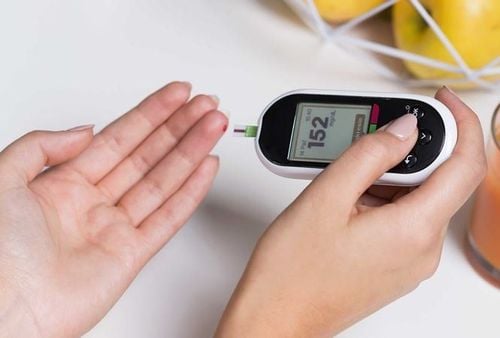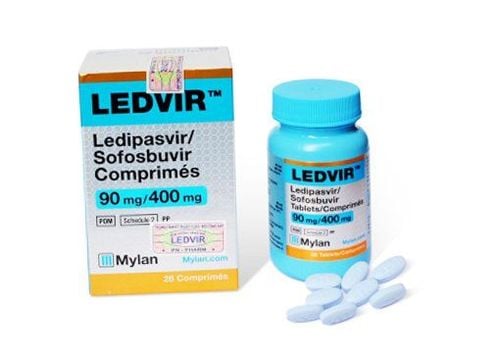This is an automatically translated article.
The article was professionally consulted with General Internal Medicine - Department of Examination & Internal Medicine - Vinmec Nha Trang International General Hospital.There are many treatment regimens for patients with diabetes. And basal insulin therapy is being used widely because of its longer-lasting effects than rapid-acting insulin.
1. What is insulin?
When you eat, a pre-programmed system in the body sends a signal to the pancreas to secrete a hormone called insulin. Insulin is responsible for transporting glucose into the muscles, liver and fat cells for energy or for storage.With diabetes, the pancreas cannot produce enough or does not produce enough insulin to meet the body's needs. As a result, blood sugar levels will rise. To control blood sugar, patients need to replace or support the function of the pancreas by using insulin.
When using insulin, diabetics can follow meals to reduce blood sugar levels immediately after eating. In addition, patients also need to use a small amount of insulin between meals to ensure stable blood sugar. That's why long-acting insulin was born.
2. What is basal insulin?

Insulin tác dụng kéo dài còn được gọi là insulin nền
Rapid-acting insulin: Starts to work 15 minutes after injection, peaks in about 30-90 minutes, and lasts 3-5 hours. ; Short-acting insulin (regular): It takes about 30-60 minutes to work, peaks in 2-4 hours, and the effects can last 5-8 hours; Moderate-acting insulin: Takes effect after 1-3 hours, peaks after about 8 hours, and effects can last 12-16 hours; Long-acting insulin: Takes the longest to start working: it takes 4 hours to get into the bloodstream, there is no peak period so it helps stabilize blood sugar throughout the day. This mechanism is similar to the effect of insulin produced by the pancreas to control blood sugar between meals. Long-acting insulin is also known as basal insulin. It helps control blood sugar levels in the patient's body throughout the day. There are two types of long-acting insulin on the market: insulin glargine (Lantus) that lasts up to 24 hours and insulin detemir (Levemir) that lasts 18 to 23 hours.
3. Application of background insulin therapy for diabetes treatment

Liệu pháp insulin nền có hiệu quả tốt trong việc kiểm soát đường huyết cho bệnh nhân đái tháo đường
3.1 Indications Patients with preprandial and postprandial blood sugars in the normal or slightly elevated range as recommended but HbA1c not reaching target when combined with oral hypoglycemic tablets at the maximum dose.
According to the American Association of Clinical Endocrinologists (AACE) and ADA/EASD 2012, basal insulin therapy is indicated for patients with type 2 diabetes at risk of glucose toxicity, HbA1c > 8% despite taking 2 pills or not reaching target after 1 year of treatment.
3.2 Calculation of insulin dose Basal insulin combined with previous oral tablets (1, 2 or 3 maximum doses): Use oral hypoglycemic drugs as usual + 1 dose of slow insulin human insulin type NPH injected below skin after eating well before going to bed. If slow insulin analogue injection (insulin detemir, insulin glargine,...) can be injected at any time of the day at the same time of taking hypoglycemic drugs.
3.3 Dosage It is recommended to start with low-dose insulin 0.1 U/kg and gradually increase to a maximum of 0.4 U/kg.
3.4 Recommendations Adjust insulin dose in basal insulin therapy based on morning retrospective glycemic control for at least 3 consecutive days. If the patient has an episode of hypoglycemia, the dose of insulin injection should be adjusted; When using NPH insulin, it is necessary to check blood sugar before going to bed because this type of insulin peaks at night, easily causing hypoglycemia during sleep. 3.5 Side effects when using basal insulin Like any other medicine, basal insulin injection can cause some side effects:
Low blood sugar : Dizziness, chills, blurred vision, headache, weakness and fainting; Other side effects: Soreness, redness or swelling at the injection site. Basal insulin therapy is effective in controlling blood sugar in patients with diabetes. Therefore, when indicated to use this therapy, patients should consult their doctor for exact advice on injection schedule and appropriate dose.
Please dial HOTLINE for more information or register for an appointment HERE. Download MyVinmec app to make appointments faster and to manage your bookings easily.













